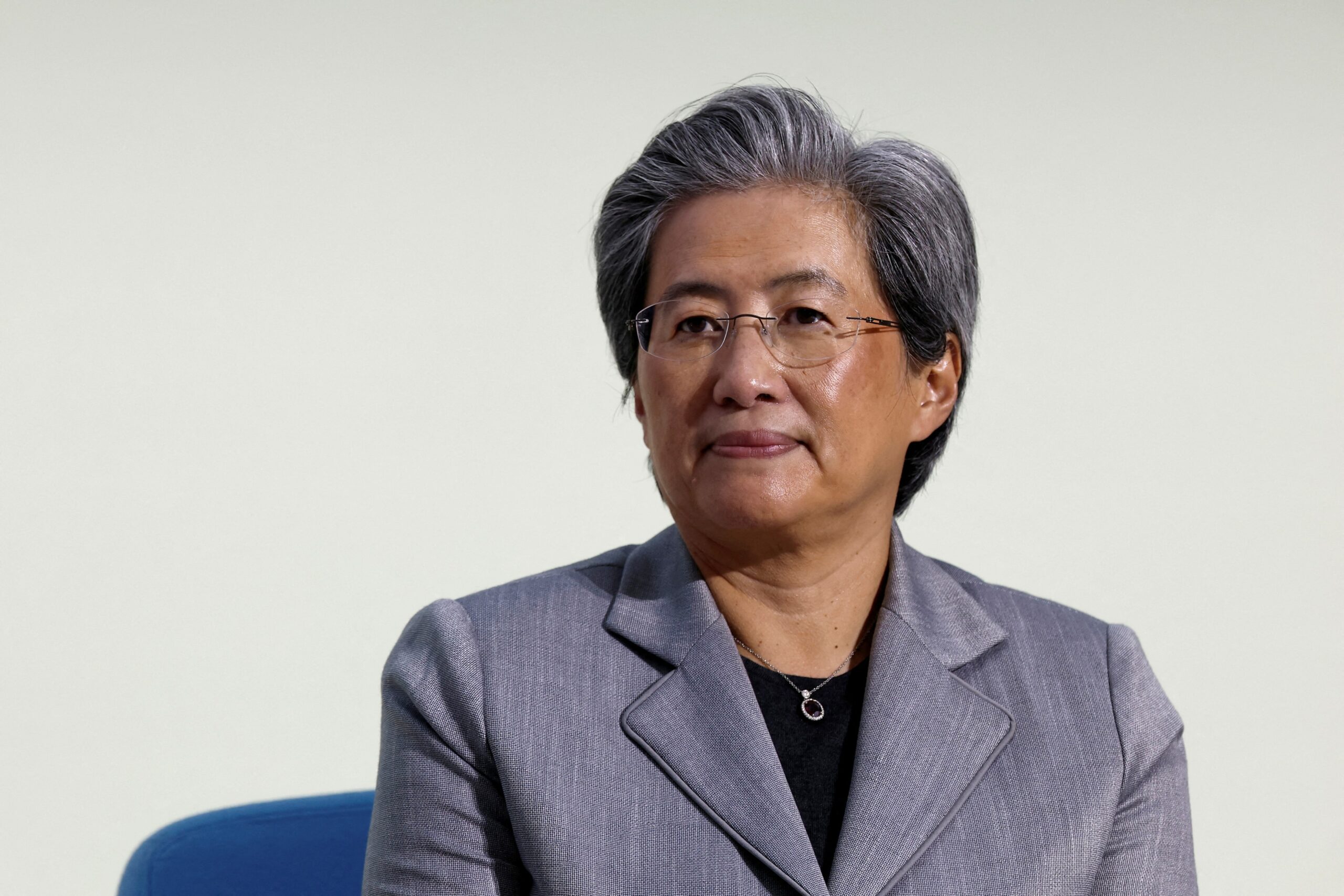Advanced Micro Devices (AMD) CEO Lisa Su unveiled a new artificial intelligence server called ‘Helios’ at the ‘Advancing AI’ developer conference in San Jose, California. The server, planned for release in 2026, will feature 72 of AMD’s MI400 series chips, making it comparable to Nvidia’s current NVL72 servers.
AMD’s Challenge to Nvidia
The move marks AMD’s direct challenge to Nvidia’s dominance in the AI chip market. Su emphasized the importance of open collaboration in the industry, stating, ‘The future of AI is not going to be built by any one company or in a closed ecosystem. It’s going to be shaped by open collaboration across the industry.’
AMD’s Helios servers will have openly available networking standards, a departure from Nvidia’s proprietary NVLink technology. This openness is expected to attract industry support and potentially erode Nvidia’s market share.
Partnership with OpenAI
Su was joined onstage by OpenAI’s Sam Altman, who announced that the ChatGPT creator is working with AMD on the firm’s MI450 chips to improve their design for AI workloads. Altman described the recent infrastructure ramp-up in AI as ‘a crazy, crazy thing to watch.’
Other industry executives, including those from xAI, Meta Platforms, and Oracle, also took the stage to discuss their use of AMD processors. Crusoe, a cloud provider specializing in AI, plans to purchase $400 million worth of AMD’s new chips.
AMD’s AI Strategy
AMD has been making strategic acquisitions and investments to bolster its AI chip and software capabilities. The company completed its acquisition of server builder ZT Systems in March and has made 25 strategic investments in the past year related to its AI plans. AMD also hired the team from chip startup Untether AI last week and several employees from generative AI startup Lamini on Wednesday.
Despite these efforts, AMD’s shares ended 2.2% lower following the announcement. Analyst Kinngai Chan of Summit Insights noted that the new chips may not immediately change AMD’s competitive position against Nvidia.
AMD’s software, ROCm, has struggled to gain traction against Nvidia’s CUDA. However, Su reiterated the company’s commitment to its product plans, which align with Nvidia’s annual release schedule for its Blackwell chips.



